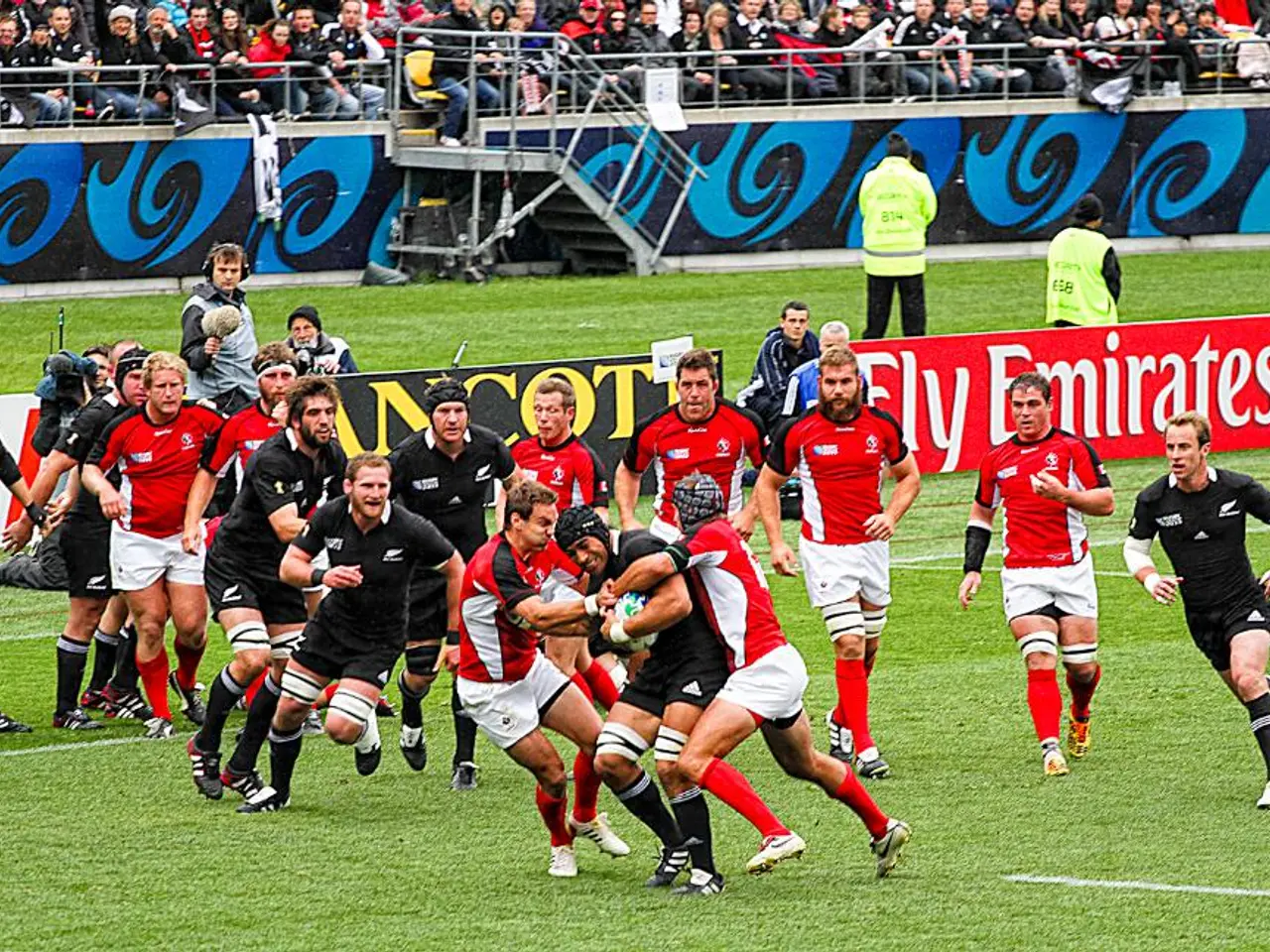Energy Department of the U.S. Ventures to Amend a Title IX Regulation. Why the Effort?
The Trump administration has proposed a change to a long-standing Title IX rule regarding equal opportunities in noncontact sports for all students. This proposed regulation change, which could affect around 300 universities and 80 school districts that receive Energy Department funds, is one more example of how Trump's policies have become "much more blatant" in undoing protections added by other administrations, according to Elizabeth Meyer, a professor of education policy at the University of Colorado-Boulder.
The Title IX revision would rescind a requirement that schools receiving money from the Energy Department allow students of both genders to try out for noncontact sports teams. This change removes the equal participation requirement for schools receiving Energy Department funds. Additionally, the Energy Department change would revoke a provision requiring that new construction it funds be accessible to people with disabilities.
The Energy Department is also proposing to rescind a number of nondiscrimination provisions. These include a requirement that recipients of department funding not run its programs in a way that might have discriminatory effects (disparate impact) and another requiring that they provide information about their services in languages other than English when the intended population needs information in another language.
Trump's administration has repeatedly focused on transgender student policies, with the interpretation of Title IX ping-ponging between Democratic presidents and Trump. In its final days, President Joe Biden's Education Department attempted to expand the regulations to outlaw categorical bans on transgender student participation in sports, but the effort was ultimately dropped.
The U.S. Department of Education is joining the U.S. Department of Energy in enforcing civil rights laws in schools. Multiple agencies have launched civil rights investigations into schools, athletic associations, and state education departments to advance the president's directives. The proposed Title IX change was submitted alongside several others and is slated to take effect July 15.
The Energy Department's Title IX rulemaking is a first in the 20 years Elizabeth Meyer, a professor of education policy at the University of Colorado-Boulder, has studied the anti-sex-discrimination law and its intersection with schools. Brett Sokolow, the chairman of the Association of Title IX Administrators' advisory board, suggested regulations should focus on actual harms rather than speculative ones that could lead to banning an entire class of people. The association believes the change would harm all athletes, not just transgender students.
Trump's administration argues the presence of trans athletes on girls' teams is a violation of Title IX, an interpretation of the law no court has endorsed, according to legal experts. The proposed change drew over 21,000 comments in a feedback window that ended this week. The Energy Department is using an unusual procedure, called direct final rulemaking, to avoid providing a formal comment period for members of the public to weigh in.
It's important to note that the Education Department's Title IX regulations still require schools to offer girls the chance to try out for noncontact sports when there's no girls' team and vice versa. The Title IX revision applies to schools and aligns with Trump's executive order threatening to pull federal funds from schools that let transgender athletes compete on girls' teams.
This news underscores the ongoing debate and shifting policies surrounding Title IX and its impact on schools and students across the United States.
Read also:
- Greece pursuing building techniques without the use of traditional heating methods
- United States Postal Service Upcoming Price Hikes for Festive Delivery: Essential Details and Amounts Disclosed
- Substantial Interest in Biostimulants Maintained Despite a Significant 86% Decrease in Funding for the Sector
- Strategies for Managing Feeling of Being the Only Friend in a Group





